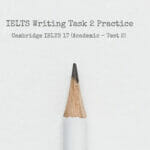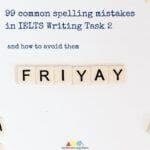Introduction
The International English Language Testing System (IELTS) is a globally recognized exam designed to assess the English language proficiency of non-native speakers. With IELTS scores being a crucial component of various immigration, education, and professional opportunities, it’s natural to feel nervous and stressed on test day. Fear not, as we’re here to share proven tips to help you sail through your IELTS exam with confidence.
Prepare Well in Advance
The key to confidence on the day of the test is thorough preparation. By familiarizing yourself with the test format, question types, test-taking strategies, and scoring criteria, you’ll have a better understanding of what’s expected. To get started:
– Study the official IELTS website and resources for comprehensive information.
– Practice sample tests and review your answers to understand your weaknesses.
– Use IELTS-specific study materials, such as textbooks and online courses, for targeted learning. Books like “The Official Cambridge Guide to IELTS” and “Cambridge IELTS 1-17” provide targeted learning materials and strategies.
Create a Study Plan
An organized study plan ensures that you have dedicated time for each section of the test. Break down your preparation into manageable chunks and allocate time for the following:
– Reading: Enhance your vocabulary and reading speed by reading a variety of English materials, including newspapers, books, and magazines. Make a habit of reading diverse topics to enhance your comprehension skills.
– Writing: Practice writing essays and letters, focusing on grammar, coherence, and task response. Break down your practice into two categories: Task 1 (letter or graph description) and Task 2 (essay). Use websites like Grammarly to get feedback on your writing. Ask an experienced IELTS instructor for specific feedback. Identify your common mistakes and practice enough to eliminate them.
– Listening: Improve your listening skills by watching English movies, news channels, and podcasts with various accents. Familiarize yourself with different accents by using resources like TED Talks, BBC Learning English, or EnglishClass101. Use Cambridge IELTS books to practice IELTS Listening, and become familiar with the test format, question types, and time management.
– Speaking: Engage in conversations with native speakers or join language exchange groups to practice your fluency and pronunciation. Record yourself while practicing speaking topics, and evaluate your fluency, pronunciation, and grammar. Join platforms like italki to connect with language partners.
Take Practice Tests
Simulating test conditions with practice exams is vital for building confidence. Track your progress by taking timed practice tests and reviewing your results.
– Choose a quiet, well-lit space that mimics the test environment. Remove any distractions, like your phone or unnecessary electronic devices, and adhere to the time limits for each section.
– Analyze your mistakes and develop strategies to avoid them in the future. For example, if you struggle with true/false/not given questions in the reading section, study specific strategies to tackle them more effectively.
– Use the official IELTS band score descriptors to gauge your performance and set goals. Familiarize yourself with the criteria for each band score to set realistic goals and track your progress.
Address Anxiety and Stress
Feeling anxious or stressed before the test is normal, but it’s essential to manage these emotions to perform well. Here are some techniques to help you relax:
– Practice mindfulness and deep breathing exercises to stay calm. Use guided meditation apps like Headspace or Calm to help you relax and focus.
– Get regular exercise, maintain a balanced diet, and get adequate sleep. Engage in physical activities like jogging, swimming, or yoga to alleviate stress and improve concentration.
– Visualize yourself succeeding and staying confident throughout the test. Picture yourself confidently answering questions and receiving your desired band score. This positive reinforcement can boost your self-esteem and motivation.
Organize Test Day Essentials
Preparing your test day essentials in advance can help reduce last-minute stress. Make sure you have the following ready:
– Your ID (passport) as mentioned in your IELTS application. Double-check the ID you registered with and ensure it’s not expired.
– A clear plastic water bottle with no labels. Keep yourself hydrated during the test, but ensure that the bottle has no labels to avoid any potential issues.
– A printout of your IELTS test confirmation.
– Three HB pencils, an eraser, and a sharpener. Bring extra pencils to avoid wasting time sharpening them during the test.
Arrive Early and Acclimate
Arriving at the test center early can help you acclimate to the environment and minimize anxiety.
– Plan your route to the test center beforehand and allow extra time for potential traffic or public transportation delays.
– Familiarize yourself with the test room layout and locate restrooms and water facilities.
– Use the waiting time to practice deep breathing exercises and visualize a positive outcome. Avoid discussing test-related topics with fellow test-takers to minimize anxiety.
Employ Test-Taking Strategies
Applying proven test-taking strategies can boost your confidence and performance during the exam. Some helpful tips include:
– Skim through the questions before starting each section to get an overview. For instance, in the reading section, quickly read the questions to identify keywords and know what to look for in the passage.
– Manage your time effectively and avoid spending too long on a single question. For example, in the writing section, spend 20 minutes on Task 1 and 40 minutes on Task 2. Avoid spending more than 2 minutes on a single reading question.
– For the listening section, use the allotted time to read and understand the questions before the audio starts. Use the given time to underline keywords in the questions. As you listen to the audio, answer the questions. Remember that the audio is played only once, so focusing on understanding the context and main ideas is crucial. Identify distractors and do not choose them as your answer.
– Try to answer all reading and listening questions as you will not lose marks for wrong answers. Even if you’re unsure of an answer, take an educated guess. Remember, spelling is important.
A few more tips
– Stay flexible: Be prepared to adapt your strategies during the test. If you find that your usual approach isn’t working, switch to a different method to avoid getting stuck.
– Review your answers: If you finish a section early, use the remaining time to review your answers and check for errors or incomplete responses.
– Practice paraphrasing: Since IELTS often tests your ability to rephrase information, practice paraphrasing sentences and passages during your preparation. This will be useful in the reading, writing, and listening sections.
– Focus on coherence: In the speaking and writing sections, ensure that your ideas are logically connected and easy to follow. Use transition words (e.g., however, moreover, in addition) to improve coherence.
Conclusion
Achieving IELTS test day confidence is a combination of thorough preparation, effective stress management, and employing test-taking strategies. By following these proven tips, you’ll be well on your way to a winning performance.
Remember, practice makes perfect, so consistently work on your language skills and familiarize yourself with the test format. With determination, persistence, and a positive mindset, you’ll be able to conquer your IELTS exam with ease and confidence. Good luck, and may you achieve the scores you desire!





0 Comments